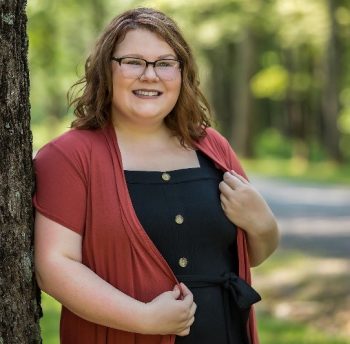Home / Health & Wellness Articles / Mental Health /
The Beauty in Purposelessness

Throughout life, many of us are taught that our worth is equal to how much we produce and contribute. This value, while originally thought to inspire work ethic, has instead created a world full of people with some really difficult core beliefs and a tendency for burnout. They tend to burn out because they seldom take a sick day for fear of inconveniencing their employer and/or never say no to a task even if it falls outside of their specified work duties.
Do you have someone in mind yet? Do you feel called out? Me, too.
From the time I was a teenager, I was always looking forward. In high school, I took enough college classes to earn an associate’s degree. In college, I lived on the dean’s list. After college, in just eight short years, I got married and had 3 children.
Never being one to slow down, I decided to switch careers after my third child was born and started working towards my Master’s in Social Work. Fast forward two years through a pandemic, two job changes, and a graduation, and here you will find me, still completely clueless about life and its complexities.
But recently, I think I have figured out one of life’s best kept secrets: there is beauty in purposelessness. Read that again. Did you feel a pang in your gut? Then this is for you.
I had this realization a month ago, shortly after tidying up my nightstand. Until that day, a book about the impact of childhood trauma had sat on my bedside table for roughly a year. Night after night, that book sat unopened while I made false promises of, “I’ll read it tomorrow,” while chastising myself for not being a better social worker.
Suddenly, a hobby that I used to enjoy had become a task that I wholly avoided because of the purpose that I assigned it. Reading had become a means of productivity — just another item on my never-ending to-do list. This revelation is what sparked my interest in purposelessness and led me to the following conclusions:
- Purposelessness, as I think about it, is a temporary state of being during which we can do the things we enjoy just because we enjoy them.
- In moments of purposelessness, we aren’t focused on the end result but rather we are participating in an activity just because we want to.
- Making the decision to do something purposeless can be empowering, and giving yourself permission to enjoy these moments can be life changing.
- Purposelessness and self-care often go hand in hand, but not always
- Purposelessness takes self-care to the next level by giving yourself the option to do something just because.
When we see “purposelessness” for the gift that it is in this wildly evolving world, we change. When we give ourselves permission to do something just because we want to, we change. When we understand the power in deriving self-worth from things other than productivity or perception, we change.
Thankfully, I saw the light in the form of a terrible romance novel with delightfully sophomoric writing. Most importantly, when I set aside my own self-expectations and deeply-rooted beliefs about self-worth, I realized that one of the most incredible things about being human is the ability to find joy and life in the most mundane, purposeless tasks. So go — eat the ice cream, read the trashy romance novel, play the video game, watch the movie.
Do the thing that brings you joy. Just because you can.
Megan Ragan has accrued more than 250 hours of training in the subject of childhood trauma, traumatic stress, and other related subjects. Ragan has 10 years’ experience in child-serving systems and graduated with her Masters of Social Work from Louisiana State University in August 2021. Ragan is certified and experienced in multiple therapeutic modalities including Eye Movement Desensitization Reprocessing, Trauma-focused Cognitive Behavioral Therapy, Parent Child Interaction Therapy, Child Parent Psychotherapy, and Managing Adaptive Practices Therapy. When Ragan is not providing direct service support to children and families, she is training community members on the subject of childhood trauma.


